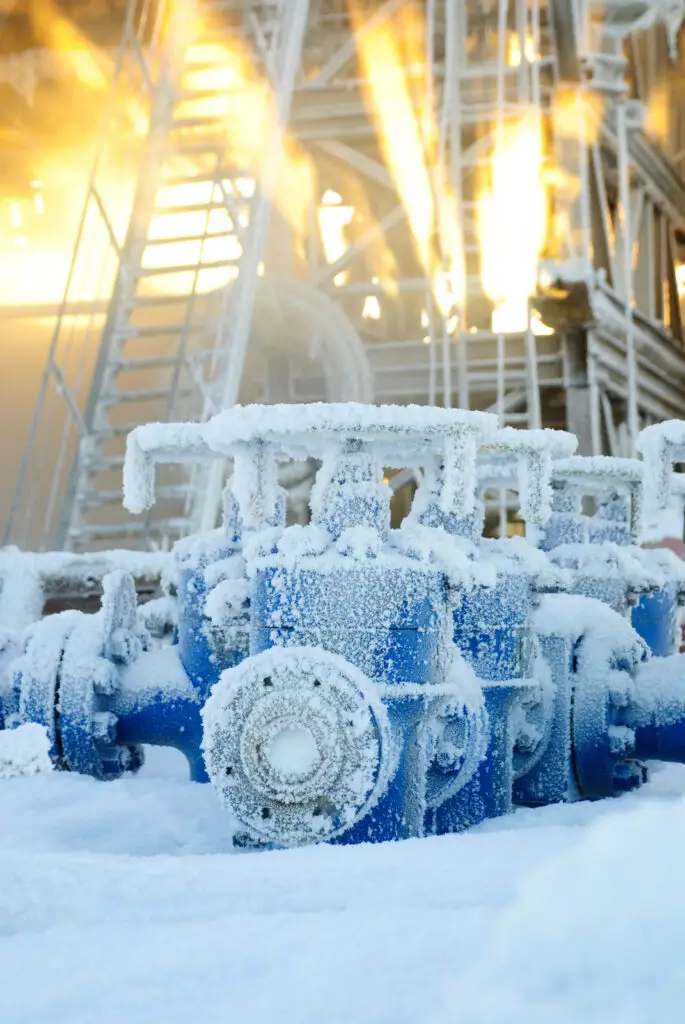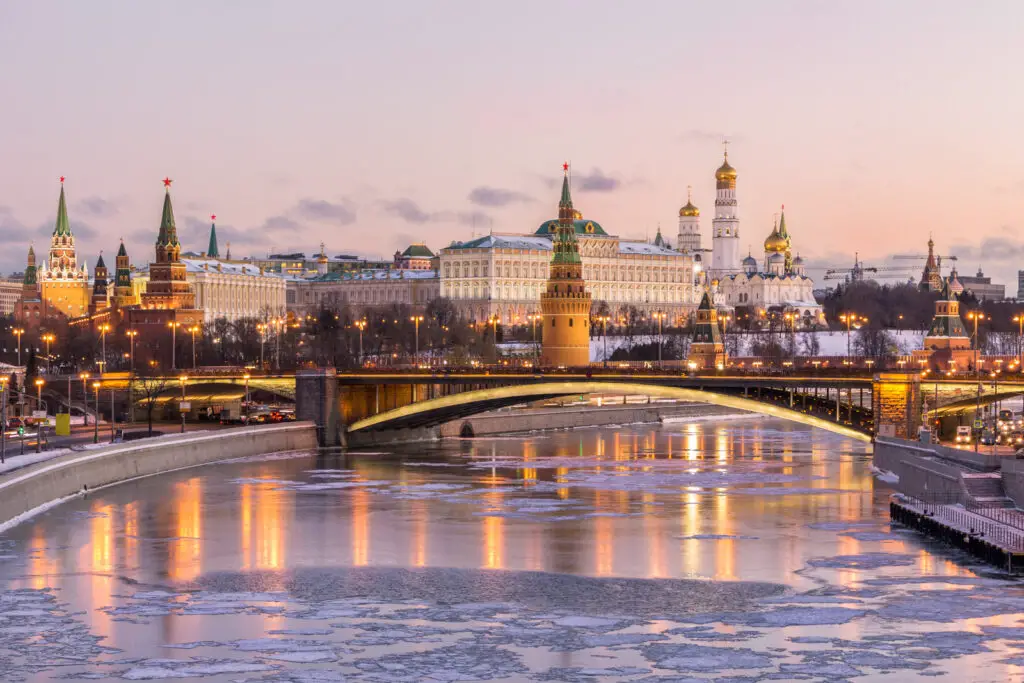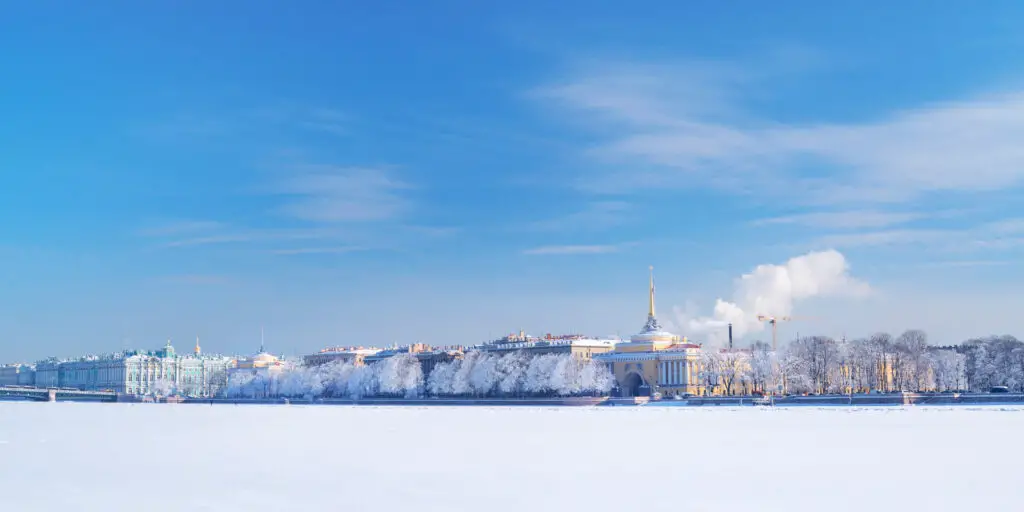As westerners, there’s this preconceived notion that all of Russia is like Siberia — an endless frozen tundra. In reality, that’s not the case. Today we will take a look at a few different regions of Russia, and their climates. First, the question you all came here for.
Is it always cold in Russia?
No, contrary to popular belief, it is not always cold in Russia. The coldest months of the year are November to March where the average low temperature ranges from 18-25° F.
Alright, so how cold is it in Russia?
If you look at Russia as a whole, the average temperature ranges from a low 18° F in the winter to a high of 75° F in the summer. The lowest recorded temperature in Russia was -90° F and the highest recorded temperature was 110° F.
As you know though, Russia is an extremely large country. So while some of Russia can get extremely cold, on average it is not much colder than central Europe. Let’s start where the “it’s always cold in Russia” stereotype began, Siberia.
How cold is it in Siberia?

The general climate of Siberia is described as having long brutally cold winters and short summers. This changes depending on where you are in Siberia.
There are two main climates here. The first is in southern Siberia and where most of the people live. It is categorized as humid continental. This is the same climate that most of central Europe has. The average annual temperature is 33° F while winters average -4 °F in January and summers average 63 °F in July.
The other climate and the one that makes up the majority of Siberia is known as continental subarctic. The average annual temperature is 23° F with an average January temperature of -13° F and an average temperature in July of 50° F.
It’s in this part of Siberia where you’ll find the coldest permanently inhabited settlement on Earth. In 1933, the village of Oymyakon recorded a temperature of -89.9° F.
How cold is it in Moscow?

Moscow has long cold winters, but they are incomparable to those in Siberia. Winter typically lasts from the end of November to the beginning of March with temperatures between 10° F and 42° F.
This is comparable to Ottawa Canada, which you might not expect.
How cold is it in Saint Petersburg?

Despite being farther north than Moscow, Saint Petersburg has a lower average winter temperature than Moscow. They are 15° F vs 10° F respectively.
Saint Petersburg is more humid though which makes it feel colder and when summers are taken into account, both Moscow and Saint Petersburg have an average annual temperature of 42° F.
The coldest city in Russia
Yakutsk is not only the coldest large city in Russia but the coldest large city in the world. It has a population of more than 300,000 people.
Here the average temperature during winter is -22° F and the lowest temperature ever recorded in Yakutsk was -83.9° F February 1891.
Another fact that proves this place has just brutal winters is the fact that it has never recorded a temperature above freezing between November 10th and March 14th.
This may make you think it’ll also have cold summers but that isn’t the case. In July the average temperature is 67° F and it fairly often exceeds 85° F.
The warmest city in Russia
Sochi is the warmest major city in Russia. There are over 600,000 people that live here. You’ve probably heard of it during the World Cup or the 2014 Winter Olympics since it hosted both.
It’s located on the black sea and one of the only places in Russia that boasts a humid subtropical climate. The average annual temperature is 65° F during the day and 52° F at night.
Technically Sochi is located on the same latitude as Nice, France, but strong cold winds from Asia cause it to be less warm.

